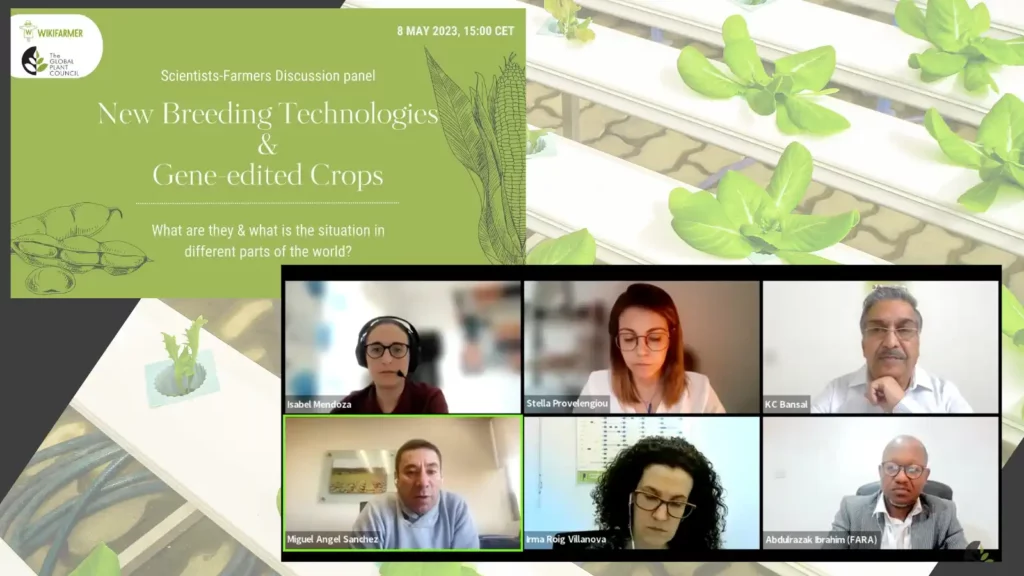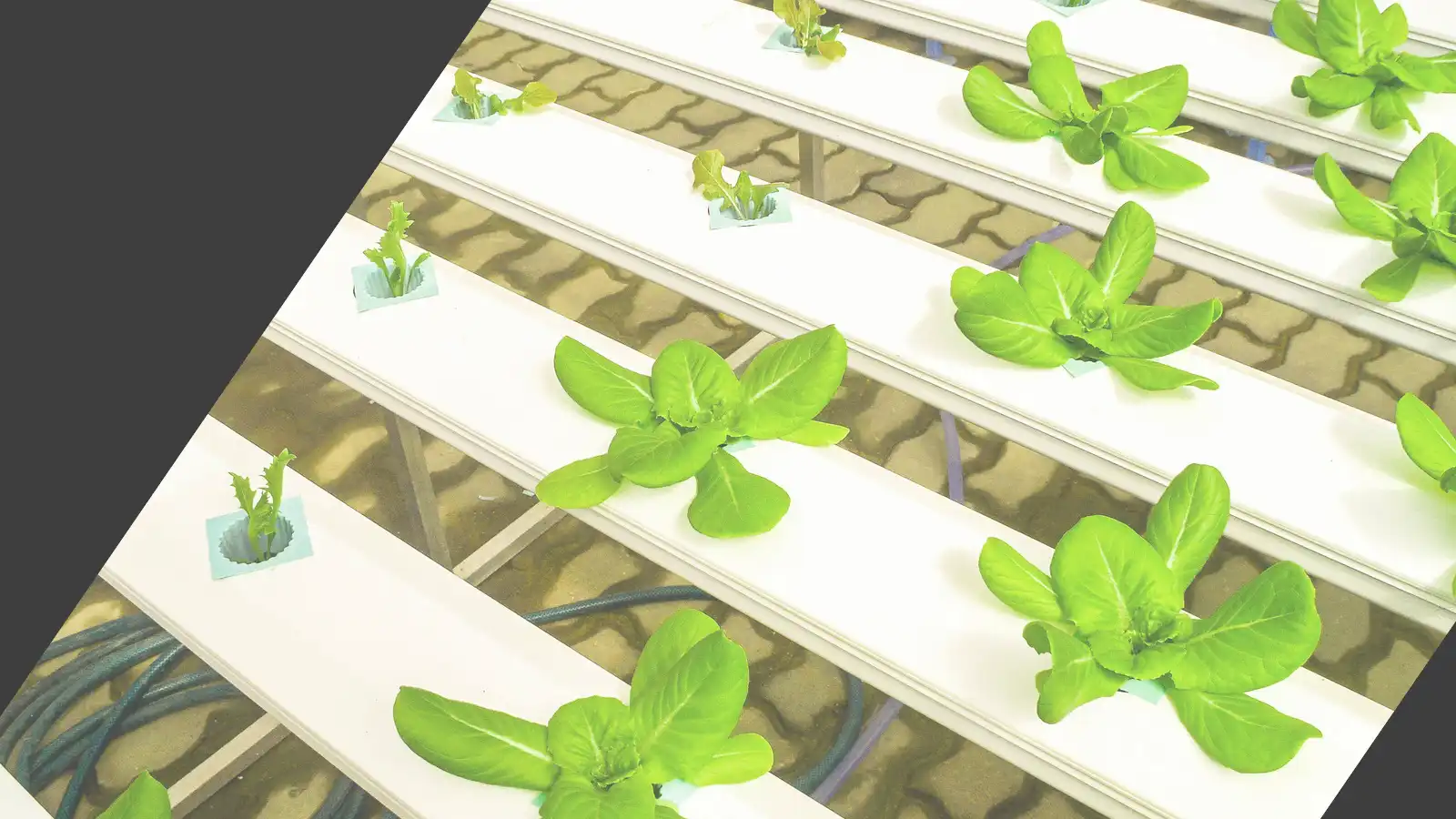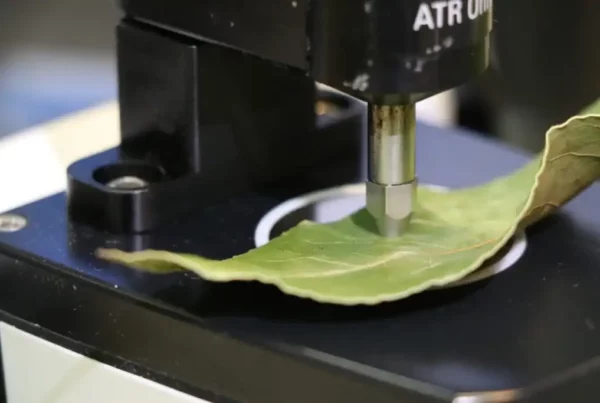Wikifarmer and the Global Plant Council organized on the 8 th of May 2023 a joint webinar that brought together leading speakers in the field of new breeding technologies and gene-edited crops. With a focus on geographical specificities, each expert shared their unique perspectives and expertise, aiming to inspire advancements in the agricultural industry and pave the way for sustainable AND productive crops in the future.
Watch the whole session on our Youtube channel.
The webinar commenced with a warm welcome from Dr. Isabel Mendoza, representing the Global Plant Council, and Dr. Stella Provelengiou, from Wikifarmer. They set the stage for an engaging discussion on gene-edited crops and the potential they hold for transforming agriculture.
Understanding Gene-Edited Crops
- Dr. Irma Roig Villanova from the Universitat Politècnica de Catalunya, Spain, took first the floor to provide an insightful introduction to modern agriculture and gene-edited crops. She highlighted the advantages and challenges of gene editing over conventional breeding techniques, emphasizing increased precision and reduced development time for new crop varieties.
- Dr. Miguel Angel Sanchez, from ChileBio, Chile, shed light on the progress of gene-edited crops in Latin America. He discussed the numerous benefits these crops offer, such as disease management, improved yield, and modification of nutritional content. Additionally, he highlighted the positive regulatory approaches adopted by many Latin American countries.
- Dr. Abdulrazak Ibrahim, representing the Forum for Agricultural Research in Africa, Ghana, shared valuable insights into the advancements of gene-edited crops in Africa. He highlighted ongoing research and projects in African countries, including Nigeria, Kenya, Burkina Faso, South Africa, Uganda, and Ghana. He stressed the importance of utilizing gene editing to introduce agronomic value, improve food and feed, and enhance tolerance to biotic stresses.

Panel Discussion and Key Takeaways
Following the individual presentations, a panel discussion and Q&A session ensued, with KC Bansal from the Global Plant Council joining the conversation. The panelists addressed various key points:
- Potential Benefits and Global Status: The potential benefits of gene editing in agriculture were discussed, such as increased crop yield, disease resistance, and enhanced nutritional quality. Contrary to what it popular believe, currently, there are only two gene-edited crops on the market, a tomato in Japan with improved nutritional content and a soybean in the US with enhanced oil content.
- Regulatory Landscape: The conversation emphasized the need for proper governance, regulation, and policies to ensure the safe and responsible use of gene editing technologies. Latin American countries were praised for their positive regulatory approaches.
- Challenges and Advancements: The speakers acknowledged challenges in gene editing tree crops, but also highlighted ongoing research to improve methods, particularly in apple and orange trees. Gene editing was stressed as an additional tool to conventional breeding, not a replacement.
- Stakeholder Engagement and Communication: Effective scientific communication and engaging stakeholders were highlighted as crucial in gaining social acceptance for gene-edited crops. The importance of simplifying scientific language, building public trust, and considering consumer preferences for better nutritional content and food security was emphasized.
- Ethical Considerations: The panelists addressed ethical considerations surrounding gene editing, particularly in humans, emphasizing the need for risk assessment, maintaining safety, and history of safe use. Distinctions between gene editing in humans and plants were highlighted due to ethical concerns.







